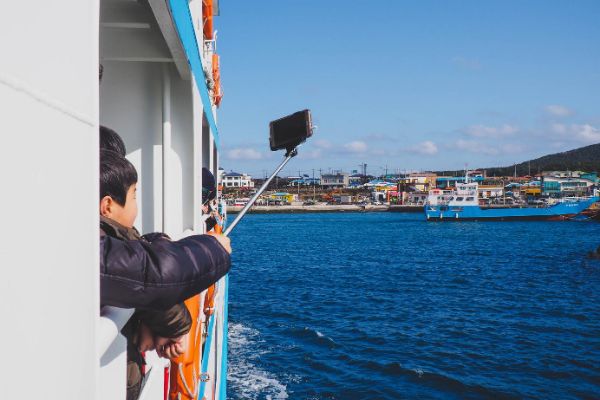According to an August 19, 2020 announcement by ICONLOOP, Jeju Island in South Korea will use its blockchain-based mobile app for private and secure COVID19 contact tracing. The mobile app will be used to ensure public health and safety on Jeju, which receives 15 million tourists annually.
Details of the App
The contact-tracing app will have ICONLOOP’s Decentralized Identity (DID) blockchain-based tech built into it. Jeju Island is South Korea’s most popular domestic tourism destination. To ensure the public health and safety of everyone, visitors will use a mobile app when checking into any tourist destination or business on the island. By leveraging blockchain, Jeju is able to compile data in a private manner, and will only reveal information to officials if a case of COVID19 is discovered.
Jeju Island’s COVID19 Measures
Jeju Island took strong measures to prevent the spread of COVID19 early on. Officials on the Special Self-Governing Island initially realized that contact tracing was an important public health and safety measure. However, the island’s officials also recognize the importance of keeping data private, which is why they are working with ICONLOOP to secure it with the blockchain. The rollout of the system will begin this week.
What the Leaders Had to Say
According to the CEO of ICONLOOP Kim Jong-hyup, the partnership with Jeju Island will open up the possibilities for real-life use cases of DID technology. He said that as more users began to enjoy the benefits of using DID, it would make them realize how blockchain technology could be used in daily life.
While commenting on the issue, the Director of Health and Welfare on Jeju Island, Tae-bong Lim, said that through the new system, it would help to make the island a safe tourist destination. He added that it would help to revitalize the local economy, which had lain dormant since the COVID19 pandemic struck the nation.
How the Contact Tracing will Work
The contact tracing will be done through the DID authentication mobile app called Zzeung, which is structured around user privacy. The system used on Jeju Island will be quite simple. When a visitor arrives on the island, they will have to download Zzeung on their phone. They can then verify their personal details via a Korean telecom service.
A verifiable credential that is secured by blockchain technology is issued to the person, which ensures that there is no risk of forgery or tampering with the details. Visitors are then required to set up a PIN or fingerprint authentication. This results in the issuance of a separate credential via a private blockchain.
Both of the verifiable credentials are stored on the user’s phone. When a visitor goes to a tourist attraction, they have to scan a QR code. After the QR code is scanned, the verifiable credential connected to the fingerprint or PIN code is sent via a secure private blockchain for record-keeping. It is worth noting that the PIN or fingerprint-connected credential does not contain any personal details.
The system ensures that people can have their movements around the island easily traced without them having to leave all their personal details at every tourist attraction they visit. Once COVID19 is detected, it ensures that contact tracing can be conducted quickly without having to filter through a mountain of personal data.
The Rollout Schedule
Jeju Island and ICONLOOP have already been conducting a pilot study at provincial government offices. On August 24, 2020, they plan to expand the study to over 50 private businesses on the island. In September, the contact tracing system will be rolled out to private businesses operating within the island.
Notice: Information contained herein is not and should not be construed as an offer, solicitation, or recommendation to buy or sell securities. The information has been obtained from sources we believe to be reliable; however no guarantee is made or implied with respect to its accuracy, timeliness, or completeness. Authors may own the crypto currency they discuss. The information and content are subject to change without notice. Visionary Financial and its affiliates do not provide investment, tax, legal or accounting advice. This material has been prepared for informational purposes only and is the opinion of the author, and is not intended to provide, and should not be relied on for, investment, tax, legal, accounting advice. You should consult your own investment, tax, legal and accounting advisors before engaging in any transaction. All content published by Visionary Financial is not an endorsement whatsoever. Visionary Financial was not compensated to submit this article Please also visit our Privacy policy; disclaimer; and terms and conditions page for further information.

